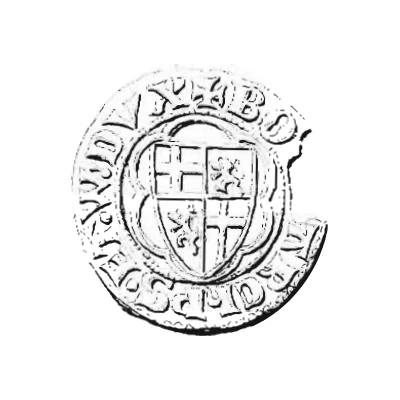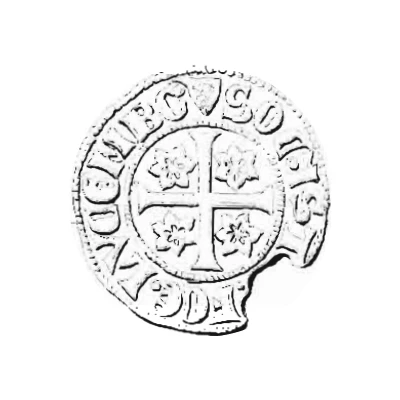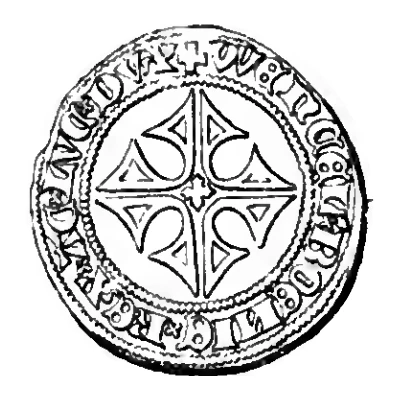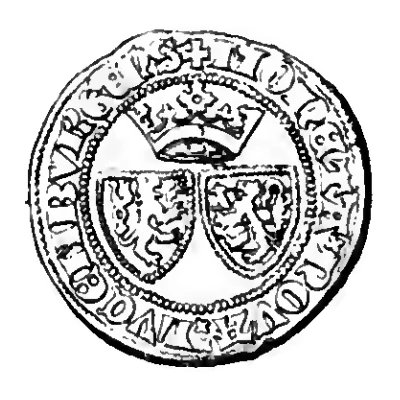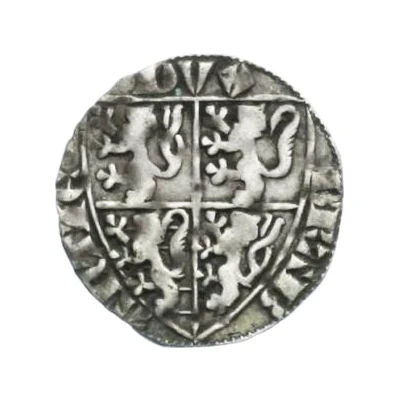
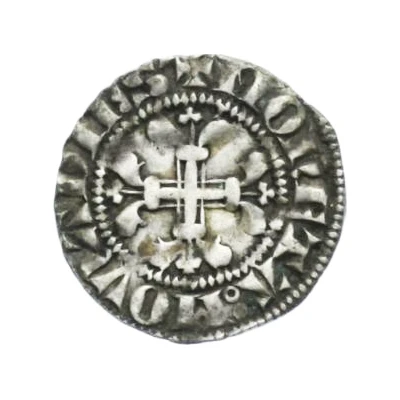

© AUREA Numismatika
Esterlin with lions - Wenceslaus I Montmédy ND
| Silver | 0.95 g | - |
| Issuer | Duchy of Luxembourg (Luxembourg) |
|---|---|
| Duke | Wenceslaus I (1353-1383) |
| Type | Standard circulation coin |
| Years | 1364-1383 |
| Value | 1 Esterlin (1⁄120) |
| Currency | Florin (1353-1713) |
| Composition | Silver |
| Weight | 0.95 g |
| Shape | Round (irregular) |
| Technique | Hammered |
| Demonetized | Yes |
| Updated | 2024-10-06 |
| Numista | N#95611 |
|---|---|
| Rarity index | 95% |
Reverse
Crossed, leafy cross, triple-veined surrounded by legend between two girdles
Script: Latin (uncial)
Lettering: + MOnETA⦂ MOVSADIES'
Lettering (regular font): + MONETA⦂ MOVSADIES'
Comment
Very rare esterlin (or Brabantinus), no date, struck around 1364-1383 in Montmédy.This esterlin is the only Luxembourg piece that was struck in the workshop of
Montmédy. The obverse is identical to the struck in Luxembourg.
Weiller lists 15 pieces of this type, most of which are kept in the medal cabinets of Brussels, Luxembourg and Trier. A single copy offered for sale in recent years (starting price well above the odds, remained unsold). Probst mentions another sale in 2002.
The average weight of 15 pieces was 0.95 g. and the extreme weights of 0.73 and 1.04 g. (Weiller, p. 76)
The copy of Bernays & Vannerus weighed 1 g. and that of Probst 1.1 g.
Variants: No variant identified by Probst or Weiller. Only one variant of the legend listed by B&V:
- Reverse:
+ MOnETA⦂ MOVƧADIES'
+ MOnETA⦂ MOVZADVS'
Four such examples were found in the vicinity of Wiltz during the discovery of the treasure A.26. This treasure, in total 152 pieces, found in 1962 was split in two and quickly dispersed in the trade. Some of these coins could nonetheless be analyzed and identified beforehand, of which the present type in n ° 63-66:
Hubert Frère & Marcel Thirion,
RBM vol.109, 1963, pp. 189-197
Some sales:
Interesting fact
One interesting fact about this coin is that it features a unique design element - the lions on the coin are depicted with their tails wrapped around their bodies, which is a distinctive feature of the Esterlin coinage of that time period. This design element was used to symbolize the power and strength of the Luxembourg dynasty, which ruled the Duchy of Luxembourg during the 14th century.
